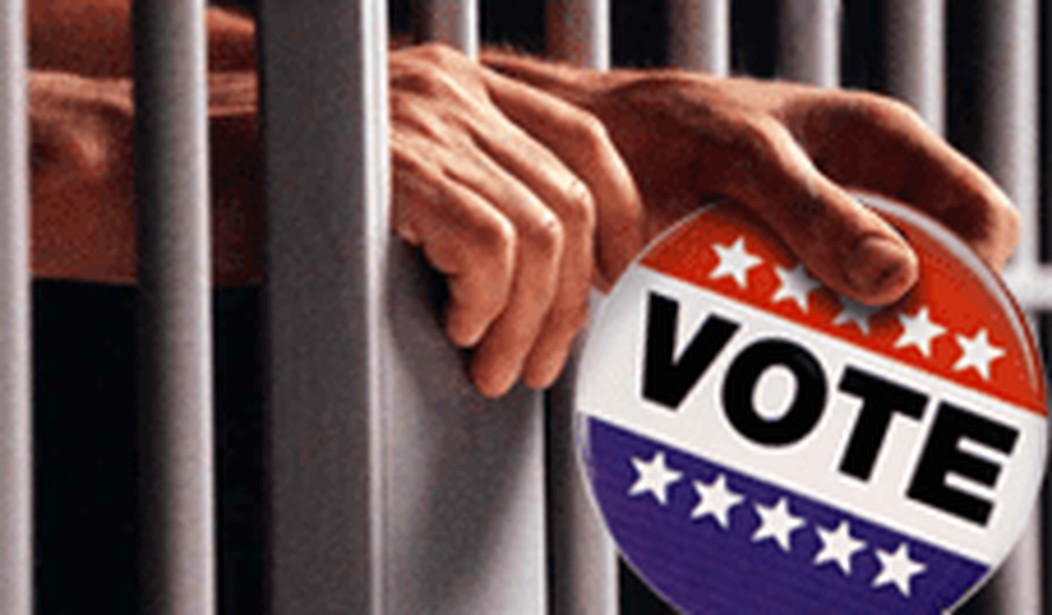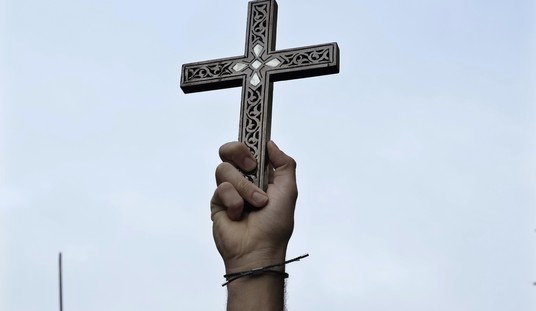WASHINGTON – The Senate may get an opportunity to look at competing bills looking to restore voting rights to convicted felons after their terms of incarceration have expired.
Sen. Ben Cardin (D-Md.) is sponsoring the Democracy Restoration Act, which would restore voting rights to lawbreakers after they have served their sentences in an effort to reduce recidivism — studies indicate that former prisoners who have voting rights restored are less likely to reoffend. The measure is in the hands of the Senate Judiciary Committee.
Meanwhile, Sen. Rand Paul (R-Ky.), thought to be contemplating a run for president in 2016, is developing his own legislation – the Civil Rights Voting Restoration Act – which would extend the franchise to fewer felony offenders.
The Paul bill, which has not been filed, differs from the Cardin measure by extending the vote only to nonviolent offenders who have been released from custody – basically targeting those imprisoned on drug charges.
Speaking on his proposal, Paul asserted “the cause is most just” and displayed his seriousness on the issue in February when he testified before a committee of the Kentucky General Assembly urging members to change state law and restore voting rights to some felons.
That effort failed, but Paul is intent on seeing that some federal offenders get their voting rights restored.
“We think that if you had a nonviolent felony — we’re for getting you voting rights,” Paul said, adding, “one mistake in life shouldn’t permanently block a citizen’s access to the ballot box.”
If the issue comes up for a vote on an already crowded Senate agenda, the Cardin bill is most likely to receive consideration since Democrats still control the upper chamber. But some maintain the Paul proposal might offer a better starting point, especially since it likely would stand a better chance of passing the Republican-controlled House.
Speaking at Georgetown University Law Center recently, Paul said he’s “just not quite there yet” on extending the franchise to all felons who have served their time, separating him from Cardin.
“There can be an argument made for — once you’ve served your time, you’ve served your time,” he said. “But I think as far as trying to get the coalition necessary to pass this, we’re looking at nonviolent felons.”
The effort places Cardin and Paul on the same side of the issue as Attorney General Eric Holder, who told an audience at the Georgetown University Law Center in February that “it is time to fundamentally reconsider laws that permanently disenfranchise people who are no longer under federal or state supervision.”
“These restrictions are not only unnecessary and unjust, they are also counterproductive,” Holder said. “By perpetuating the stigma and isolation imposed on formerly incarcerated individuals, these laws increase the likelihood they will commit future crimes.”
The U.S. is the lone Western democracy that authorizes the denial of voting rights to individuals with felony convictions. An estimated 5,850,000 citizens — about one in 40 adults – are banned from voting in federal elections as a result of a felony conviction. Only about 25 percent of those disenfranchised currently are in prison. The remainder reside throughout the country having served out their sentences or been released on probation or parole.
Cardin said the various voting laws in individual states create a disparity and lead to an “unequal participation in federal elections based solely on where an individual lives.” Maine and Vermont permit those with felony convictions to vote – even those who remain incarcerated. In 35 states, convicted individuals are prohibited from voting while on parole. And 31 of those states also disenfranchise those on probation. In 11 states, a conviction can result in a lifetime prohibition.
Many states, Cardin said, “are slowly moving to repeal or loosen many of these barriers to voting for ex-prisoners.”
“This legislation is ultimately designed to reduce recidivism rates and help reintegrate ex-prisoners back into society,” Cardin said. “When prisoners are released, they are expected to obey the law, get a job and pay taxes as they are rehabilitated and reintegrated into their community. With these responsibilities and obligations of citizenship should also come the rights of citizenship, including the right to vote.”
Proponents also maintain disenfranchisement laws disproportionately impact racial and ethnic minorities. About 8 percent of the African-American population – more than 2 million people — are disenfranchised. Given current rates of incarceration, approximately one-third of the next generation of African-American men will be barred from voting at some point during their lifetimes. Currently, one of every 13 African-Americans are rendered unable to vote because of felony convictions.
A significant portion of the Latino population also faces disenfranchisement. If current incarceration trends hold, 17 percent of Latino men will be incarcerated during their lifetimes, in contrast to less than 6 percent of non-Latino white men.
“These states that are denying voting rights to ex-offenders represents a vestige from a time when suffrage was denied to whole classes of the American population,” said Rep. John Conyers (D-Mich.), ranking member on the House Judiciary Committee, who has filed legislation in the lower chamber identical to the Cardin bill. “Just like literacy tests and poll taxes prevented an entire class of citizens — namely African Americans — from integrating into society after centuries of slavery, ex-felon disenfranchisement laws prevent people from reintegrating into society after they have served their time in prison. It is long overdue that these restrictions be relegated to the dustbin of history.”
Paul, who is seeking to strengthen ties between the Republican Party and an African-American community that regularly throws 90 percent of its vote at Democrats, noted that “when you look at who is being deprived of voting they are disproportionately people of color.”
“Kids do make mistakes,” he said. “White kids make mistakes. Black kids make mistakes. Brown kids make mistakes. But when you look at the prison population, three out of the four people in prison are black or brown.”
Cardin said Congress has a responsibility to enact a nationwide standard for restoration of voting rights, citing “the racial disparities in our judicial system.”
“When prisoners are released, they are expected to obey the law, get a job and pay taxes as they seek a fair shot at being rehabilitated and reintegrated into their community,” Cardin said. “Along with these responsibilities and obligations of citizenship should be the right to vote.”









Join the conversation as a VIP Member